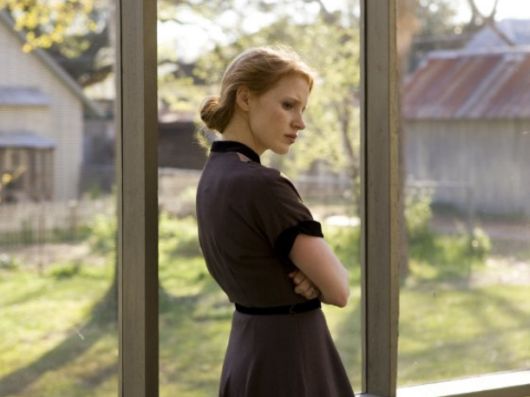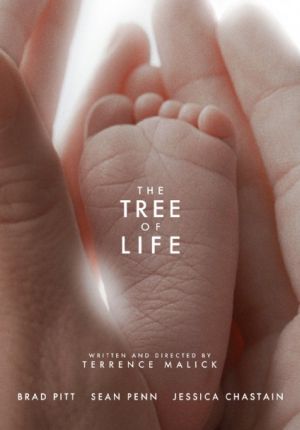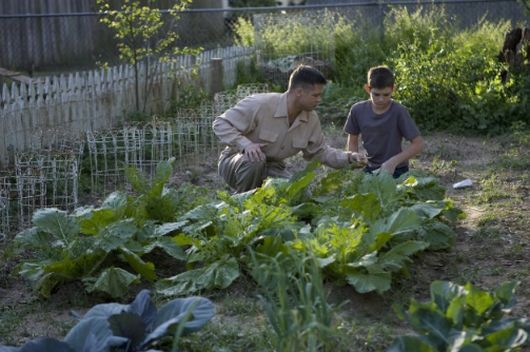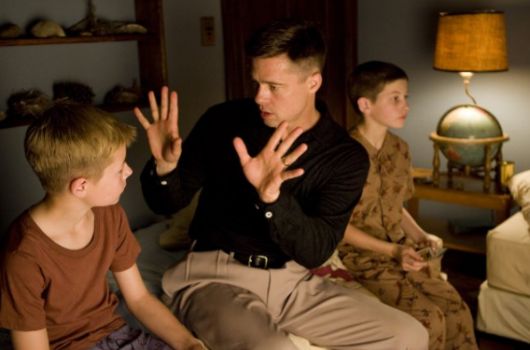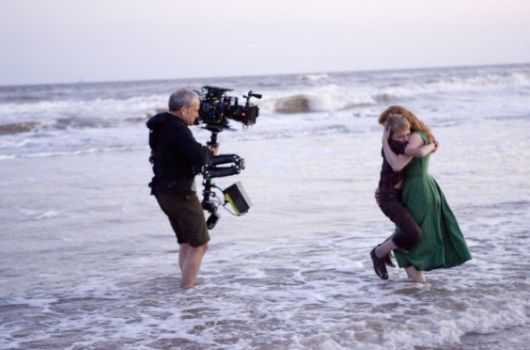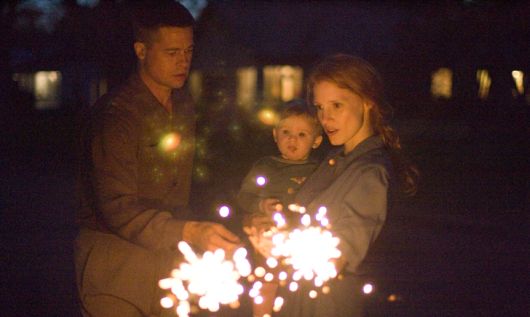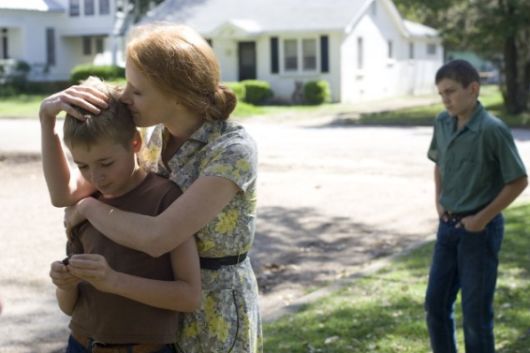 FILM
FILM In Which We Evolve Into Something Extremely Dangerous
 Friday, May 3, 2013 at 10:13AM
Friday, May 3, 2013 at 10:13AM 
Greed
by JESSE KLEIN
“I watched a lot of movies, Paul. I know what I’m doing.” So says testosterone-infused, puffed out personal trainer Mark Wahlberg as Daniel Lugo to his future co-conspirator Paul Doyle, played by Dwayne Johnson, as they speed along the Florida coast in Lugo’s rundown cherry red sports car. Michael Bay’s Pain and Gain is a retelling of actual events that took place in the Miami area in 1994 and 1995, wherein a gang of body builders abducted, extorted, tortured and in one case murdered their victims for their own financial gain, for the piece of the pie they believed they had coming to them. The film, and the riveting article that it is based upon, paints the thugs as bumbling buffoons, as incompetent, and thus extremely dangerous, nincompoops never able to see beyond the tip of their nose.
Bay marvelously Bay-ifies this story, skipping over laborious introspection yet slowing down the action scenes so much so that time stops, Wahlberg frozen flying through the air, a blank look on his face so we have no idea what he’s thinking. With a story this ripe for adaptation, it’s interesting to think how the content could have been reinterpreted. The obvious pick, the Coen Brothers, would have Fargo-d it, injecting a more deadpan, arch quality to the hijinks. Spielberg would have moralized, giving Lugo a character arc and a better-late-than-never heart of gold. Tarantino’s version might be a not so distant cousin, a little more referential humor, a lot more blood and gore, and Scorcese would shoot it in New York. Suffice it to say that Bay keeps it light; when a character feels the immediate pangs of guilt after committing his first murder, he clears his head by doing a few reps.
Lugo, Doyle and Adrian Doorbal (played with small man syndrome aplomb by Anthony Mackie) are worse than mere petty criminals with the misfortune of getting in over their head, they are each in their own way utter narcissists, unable to love anything beyond themselves. Each worships an extension of who they think they are, or want to become, and each uses their self-prescribed symbol to define their worth. Like their forebears before them, if they just get this one last score…

For Doorbal, it’s masculinity (or at least the limited, sad way that he defines it). His rampant use of steroids leave him impotent and so he seeks out more drugs to remedy the issue. There he meets Robin (Rebel Wilson), and though he never seems to show any actual interest in her, he goes to bed with her (with some help), marries her and buys her a house. Mackie’s Doorbal never seems quite sure why he’s doing any of this. Even when the couple looks happy, Mackie’s glee is manufactured as if he’d read about it in a muscle magazine the week before. Doorbal only knows that he wants. Money, an erection, a house, a girl, sex, big muscles, a wife, each thing is interchangeable for him because they exist only as a yardstick against his own definition of manhood. If his use of steroids and consequent body image is any indication, nothing is ever enough, and he will do anything in his quest for satisfaction. When drinking his power shake of breast milk mixed with his drugs, he’s genuinely confused why Doyle doesn’t want a sip.
Doyle’s obsession is not as clear-cut. With money in his pocket, his drug of choice is cocaine. But after being beaten down by prison, Doyle finds Jesus and uses religion to cordon off temptation. He lives under the tutelage of a priest and tries to lead a virtuous life but at the first sign of a threat Doyle assaults and promptly abandons him. When the gang comes into some money, he is right back where he wants to be, knee-deep in a mound of cocaine though this time he refuses to shake his religiosity. Stimulants and faith give him the same jolt: a feeling of righteousness. For a man built like a skyscraper, Doyle is massively insecure and so both drugs and religion are used as a crutch to bolster what he sees when he looks in the mirror. When he runs out of one, there is always the other. And when he runs out of both, he can just take it from someone else. Anything less would be un-American.
Daniel Lugo, the mastermind of the Sun Gym Gang, worships stuff, but even more so, he worships “stuff-ness.” What bothers him most is not what he lacks, but what others he deems inferior to him have. He looks around and sees peons, parasites. Walking through his gym, looking at overweight housewives, un-toned businessmen, he sees amorphous blobs of imperfection, people who clearly don’t take fitness, and by extension themselves, seriously. And yet, somehow, he’s the one wearing jean shorts to a job interview, shamefully confessing to his rap sheet. The best idea he ever had was offering strippers free gym memberships to boost enrollment.

Soon though, he gets his one break. But it turns out, material wealth does not make him happy; it’s not the stuff, it’s what the stuff means. Looking out at the sunset in his massive, newly stolen backyard, the light shimmering off the water in front of him, Lugo finally lets out a yelp of satisfaction but does so with eyes closed—he doesn’t need to look at the sunset, he knows it’s there. When he’s playing basketball a la Billy Madison (and Mr. Blume in Rushmore, for that matter), he jams on a 12 year-old, telling his bud he could be his stepfather by the weekend. He has no intention of doing this, he probably does not even want to—he just needs to know, and needs everyone else to know, that he can if he wants. He’ll murder his way into a PTA meeting if that’s what it takes to appear legitimate.
But how can you blame them? They learnt it from the movies.
Nearly twenty years ago, Wall Street’s Gordan Gekko’s oracular exclamation came down from the mountains: “Greed, for lack of a better word, is good. Greed is right. Greed works. Greed clarifies, cuts through and captures the essence of evolutionary spirit.” Bay’s revision of this idea comes through motivational speaker Johnny Wu (Ken Jeong) and his affirmation “Don’t be a don’ter, do be a doer:” “I had a wife, two beautiful daughters, thank God I left her, now I’m with seven honeys of which I can choose from.” Lugo’s inner monologue, “Oh my God, this guy understands me.” Lugo comes from a long line of solipsists who believe happiness is their divine right.

In Brian De Palma’s lionized 1983 gangster movie Scarface, a blood-soaked Al Pacino looks up into the night sky and sees the Goodyear Blimp staring back at him with the infamous ticker tape along the side: “The World Is Yours.” Pacino’s Tony Montana takes what he wants; his need for power is absolute and so any other desire is a distant second. He lusts after Michelle Pfeifer’s Elvira but does he do so because he is drawn to her romantically or because she is yet another status symbol he wants to possess? Moments after killing her husband Montana wakes Elvira saying, “Come on, get your stuff, you’re coming with me.” It’s not a discussion, what she wants has nothing to do with it. Tony knows little about her, and based on this discussion, it’s clear he doesn’t care to.
Scarface and movies of its ilk endlessly reference the ubiquitous yet increasingly nebulous “American Dream.” What at one point long ago imbibed a Leave It To Beaver mentality has over time shed the familial, relationship-oriented aspect of the Dream and instead focused on fierce individualism, Ayn Rand-ian capitalistic gains. The other Florida heist movie this season, Spring Breakers, pays a direct—if somewhat ironic—homage to the movie: James Franco’s character Alien coos, “I got Scarface. On repeat. Scarface. On repeat.”
Interestingly, though the film is based upon four girls and their communal thirst, it becomes apparent as the film wears on that the girls are not as close as first appears. The all-too-deliberately named Faith (Selena Gomez) is ostracized for not being cold enough, gangster enough for the other three. When she and later on Cotty (Rachel Korine) decide to leave, the other girls never contemplate going with them: their quest is a personal one, one defined by individual greatness. With two down and two left, this leaves no doubt that one would stay without the other, that each is superfluous in the other’s life. The unexpected reversal finds Alien becoming attached to the girls’ coldness, remoteness: “Y’all are my soul mates.” When Alien is shot, they don’t even turn around.
So Wahlberg’s Lugo “gives” his girlfriend Sorina (Bar Paly) to his buddy Paul because she is merely a decorative fixture to him. Paul, crawling around his hotel room floor searching for his fix, barely notices she’s there. Neither pay any real attention to her; based on their previous behavior, it seems odd to think they even might. The film’s slogan and opening line “My name is Daniel Lugo and I believe in fitness” can be translated into “My name is Daniel Lugo and I believe in me.”

The granddaddy gangster film, The Godfather, sneakily espouses similar Machiavellian principles. Pacino’s Michael Corleone initially refuses to enter into his family’s line of work; he draws a line between he and his WASP-y new bride Kay (Diane Keaton) and the darkness that looms with his father and brothers. But, over the course of the film, Michael is lured to that darkness and ultimately chooses it. When he kills at the restaurant, he kills for his family. But when he orchestrates a coup to solidify his family’s dominance, he kills for power, for himself. Michael’s “American Dream” is to be as powerful and dominant as possible, the traits he had been suppressing his whole life. At the end, Michael looks out of his new office at his wife across the hall, his former partner kissing Michael’s hand between them. And though there is only around ten feet between them, it might as well be the whole world. The door closes.
Michael chose himself. So did Tony Montana. And so did Daniel Lugo. In this, they are all together, and alone. Perhaps Gordon Gekko said it best: "Greed, you mark my words, will not only save Teldar paper, but that other malfunctioning corporation called the USA. Thank you very much."
Jesse Klein is the senior contributor to This Recording. He is a writer and filmmaker living in Montreal. You can find his previous work on This Recording here. He twitters here and tumbls here.

"Husbands" - Savages (mp3)
"Waiting for a Sign" - Savages (mp3)

 jesse klein,
jesse klein,  michael bay
michael bay 





































